
You Are More Than Your Job Title
It's time to challenge one of the most limiting beliefs in construction and engineering: that your job title defines your future.
In this honest, practical and grounded conversation, Stefanie shares her own non-linear career journey and the thinking behind her More Than an Engineer movement. She unpacks why “stability” is often an illusion, how fear and identity quietly drive burnout and why small career sidesteps can be more powerful than dramatic pivots.
If you’ve ever felt like something was missing in your career, but couldn’t quite put your finger on it, this one is for you.
Because you are more than your job title.
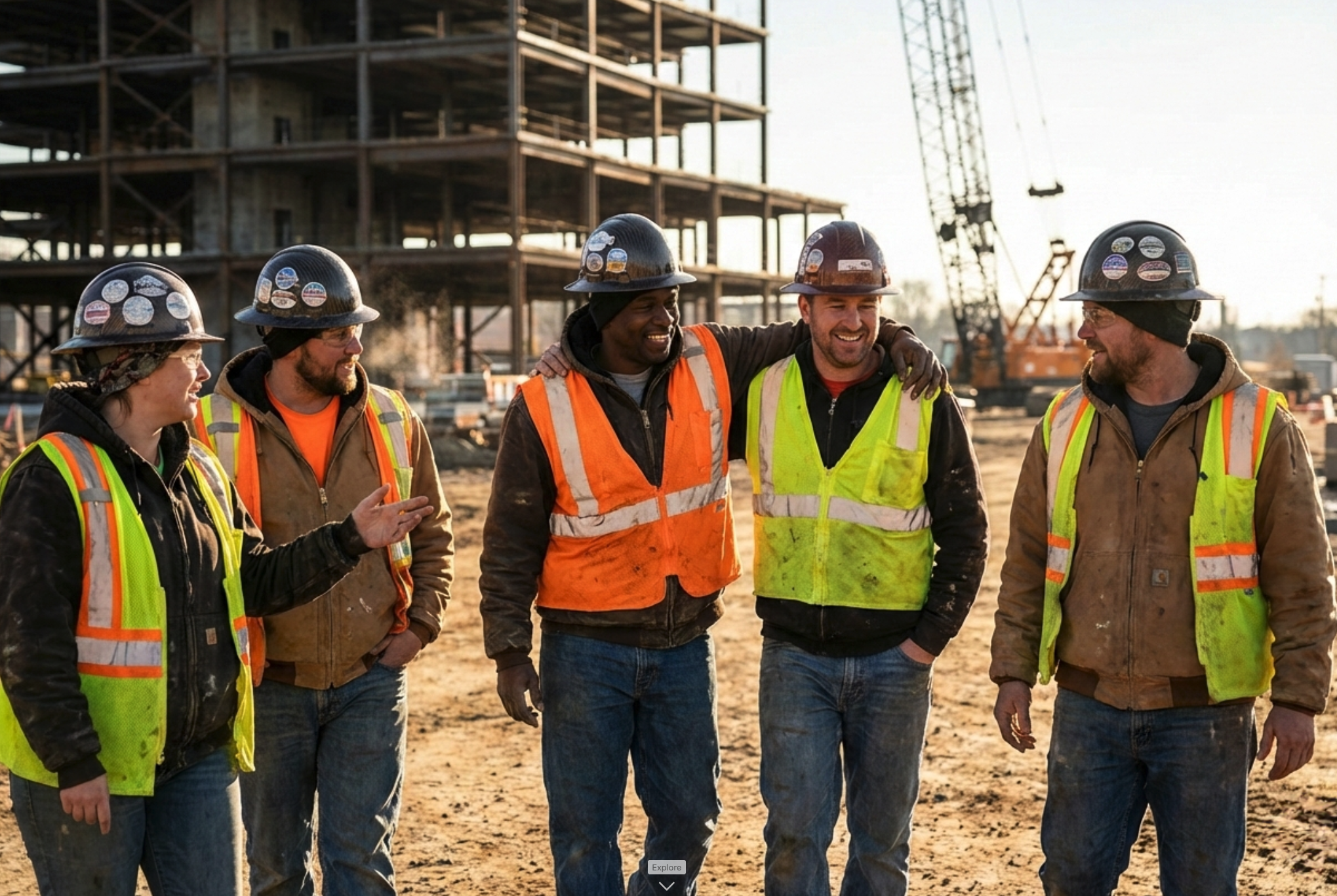
We Can’t Build Anything Worthwhile If We’re Busy Fighting Each Other
I’ve spent my entire career in and around construction and if there’s one thing every jobsite has taught me, it’s this: We are really, really good at fighting.
Unfortunately, I don’t mean a healthy debate. I mean real fighting. The kind where we draw battle lines and weaponize RFIs.
I get it, the stakes in construction aren’t theoretical and somewhere along the way we convinced ourselves that survival requires being on constant defense.
But you can’t build anything meaningful with clenched fists. And in this week where we focus on giving thanks, that truth is becoming harder to ignore.
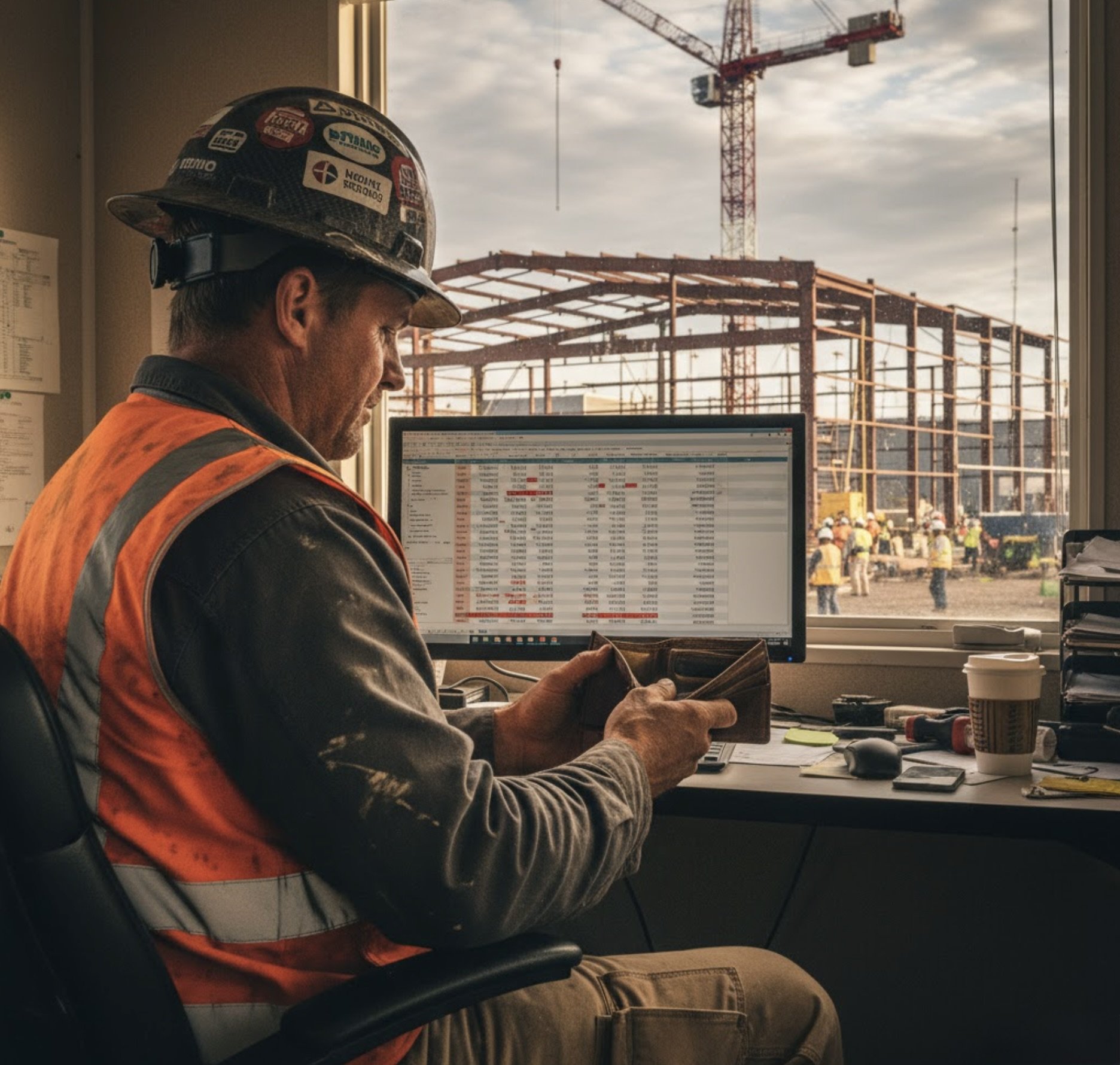
Why We Still Suck at Managing the Two Most Important Things: Time & Money
There are only two scarcities in life: time and money. And if you mess up one, you’re probably going to lose the other.
Many of us in construction have built careers fighting fires that never should have started. From war rooms full of red dashboards to schedule meetings of wishful thinking, we’ve done everything in our power to hit the deadline in time for opening day.
But only 8.5% of construction projects actually come in on time and on budget. Yup, less than one in ten.
This isn’t just a rough patch; it’s a full-blown industry crisis. Is there any hope for improvement?

Leading Through Chaos: What Construction Can Learn from the Military
It was one of those Mondays. The kind where your phone starts buzzing before your alarm does. By the time I woke up, the daily concrete numbers were off, by a lot, and by lunch we realized there was an entire floor in a multi-story building missing.
In construction, VUCA doesn’t just describe the environment. It describes Monday.
While originally defined by the U.S. Army War College to describe the chaotic conditions of modern warfare, you no longer need a battlefield to feel it. You just need a project under construction.
So how do we lead through it?

The 80/20 Lie: How Construction Tech Fooled Us All (Even Me)
For years, I’ve repeated one of construction tech’s most accepted truths: “Out-of-the-box platforms get you 80% of what you need.”
Turns out…that 80% rule was a lie regardless of how many vendors continue to sell it or executives continue to quote it.
Truth be told, I even continue to write it. Or at least I did. That is, until a week or so ago, when I got called out on it.
So, naturally, I went digging into the data to see what’s what. What I found will likely surprise you (or maybe not).

What It Really Means to Enable Innovation
Everyone will tell you they want innovation. Yet all too often, we treat it like a product to buy instead of a culture to build. We’ll sit around and talk about it all day, but few will actually live it.
The truth is, innovation isn’t something you install; it’s something you enable.
And truly enabling innovation is about more than money, software or slogans. It takes people willing to think differently, processes designed for adaptability and leadership courageous enough to trust both.
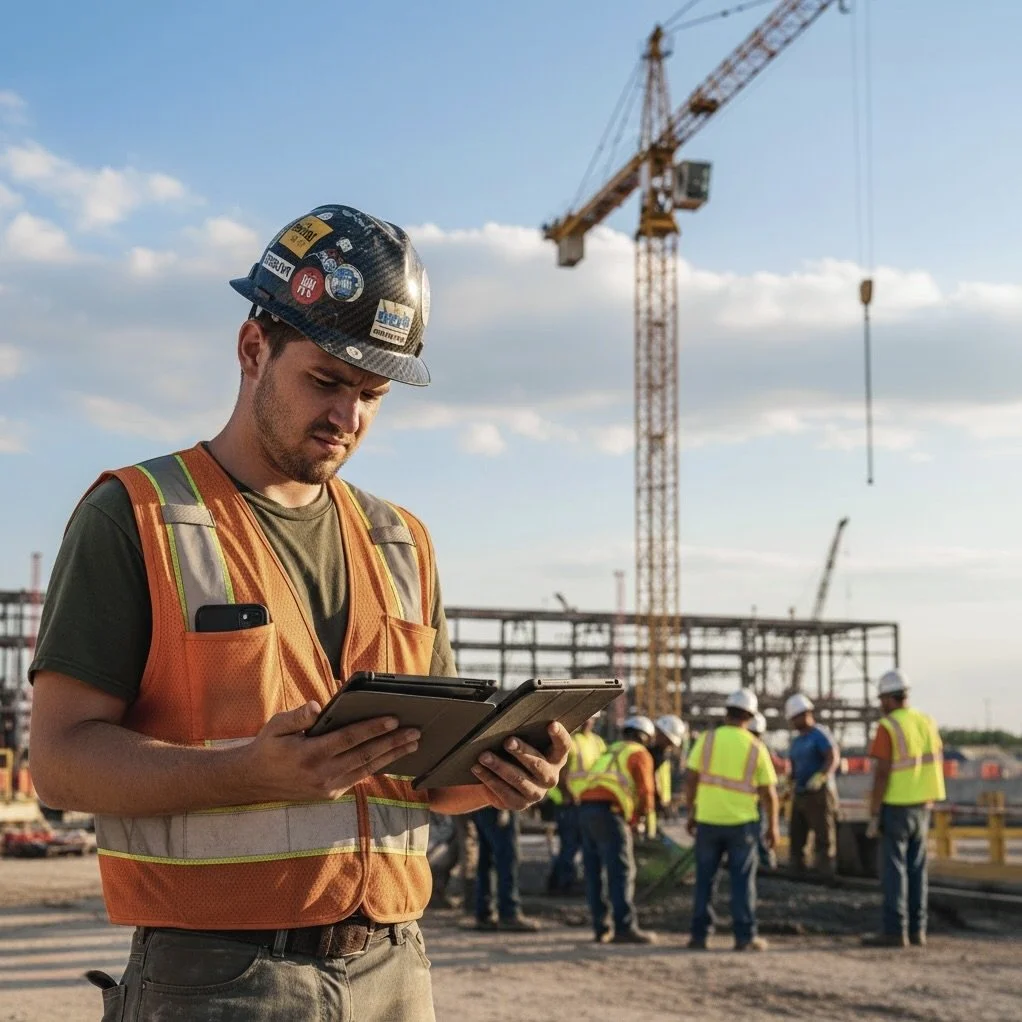
AI Needs a Foundation: Why Consolidation Still Matters in ConTech
It wasn’t all that long ago that we would carry one device for our phone calls, another for our music and a third for our email. Raise your hand if you remember that? What we didn’t realize at the time was that this monumental moment wasn’t just consolidating devices, it was consolidating data too.
As the saying goes, history repeats itself and we’re here once again. Only this time, the revolution knocking at construction’s door isn’t mobility.
It’s artificial intelligence.
And like before, the organizations that thrive will be the ones that consolidate first.

Specialization Makes Champions (Until It Doesn’t)
There’s a reason specialists exist. These folks don’t become elite by accident, but instead by living inside their craft long enough to see nuances that outsiders never will.
But there’s a dark side to specialization too. Because when all you know is one thing, all your solutions start to look the same.
Specialization without adaptability breeds fragility. However, the goal shouldn’t be to abandon specializing altogether, but rather to balance it.

AI Isn’t a Miracle, But It Will Change Construction
A few weeks ago, I threw a rock at all the AI talk in construction. Saying what a lot of folks were thinking, it seemed to hit a nerve.
The fact is, it hit a nerve because it’s true. We’re throwing around the phrase “artificial intelligence” like it’s capable of doing magic while we still can’t get drawings that don’t contradict themselves.
So, let’s slow down, breathe and figure out what AI actually is, and what it isn’t so that we choose our future wisely. At least, before we just throw a chat-bot at a laborer because it sounds smart.

Enough is Enough: Construction Needs Leaders Who Are Real
I’ll never forget that sunny vacation morning, sipping my coffee out on the deck and enjoying the view. Then my phone rang.
“We need you to do this meeting today.”
Day in and day out, we preach “core values”, but when the rubber hit the road, feeling valued is an afterthought. And that’s the nature of construction, isn’t it? This constant gap between what we say and how we actually behave.
The truth is, construction has a culture problem, one we created ourselves. So, how do we fix it?

Take Back Your Crayons: How Construction Can Unlock Their Creativity
For the first several years of my career, I was that guy that was tucked away in a corner crunching numbers. Design calcs, takeoffs, unit pricing and production rates, you name it. I was an engineer, “perfectly suited” for that role. But inside, I was bored out of my mind.
Somewhere along the way we started being rewarded for precision and punished for risk, so we stopped coloring outside the lines.
It’s a lie that has been spreading for a long time now.
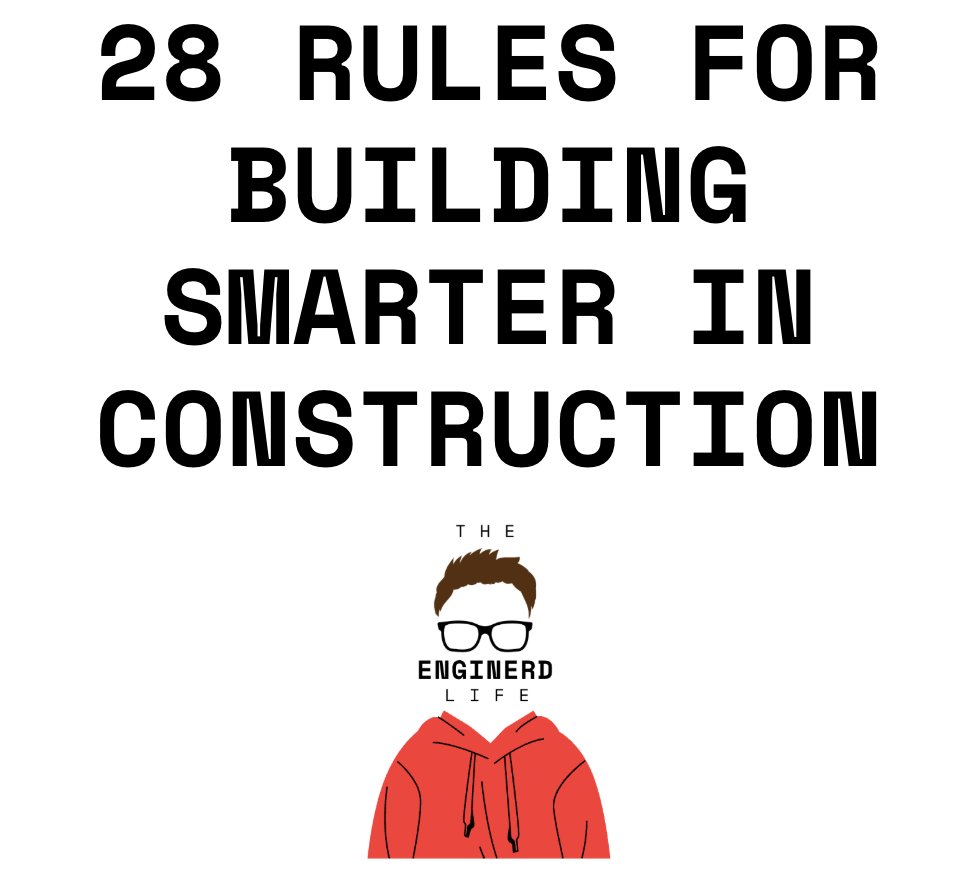
28 Rules for Building Smarter in Construction
I’ll never forget the day one of the area managers looked me dead in the eye and said, “This software is stupid.”
Because in some ways he was right. We had digitized chaos, which is a no-no.
It was a rule I learned the hard way. And after years in construction tech amassing thousands of similar conversations with people in the field I’ve collected 28 rules for building smarter in construction.
They’re part scars, part lessons learned and part rallying cry for the industry I love. Feel free to copy and paste.
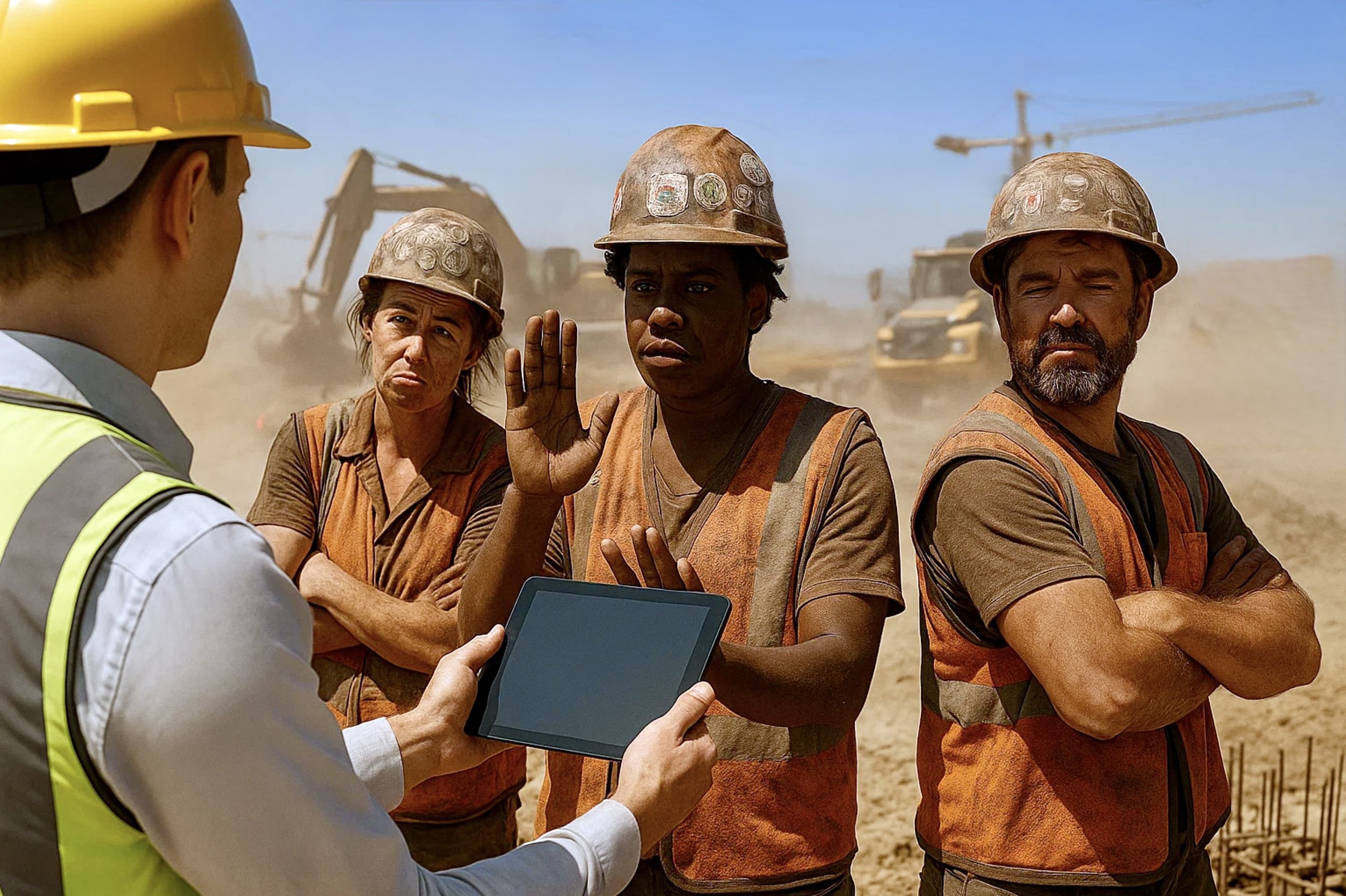
When Business Change Management Fails… It’s Not the Tech. It’s Us.
When a digital transformation fails (in construction or otherwise), it’s almost never because the technology didn’t work. It’s because we (those tasked with executing) didn’t lead the change well.
Construction doesn’t have a tech adoption problem. It has an alignment problem.
Let’s get specific…
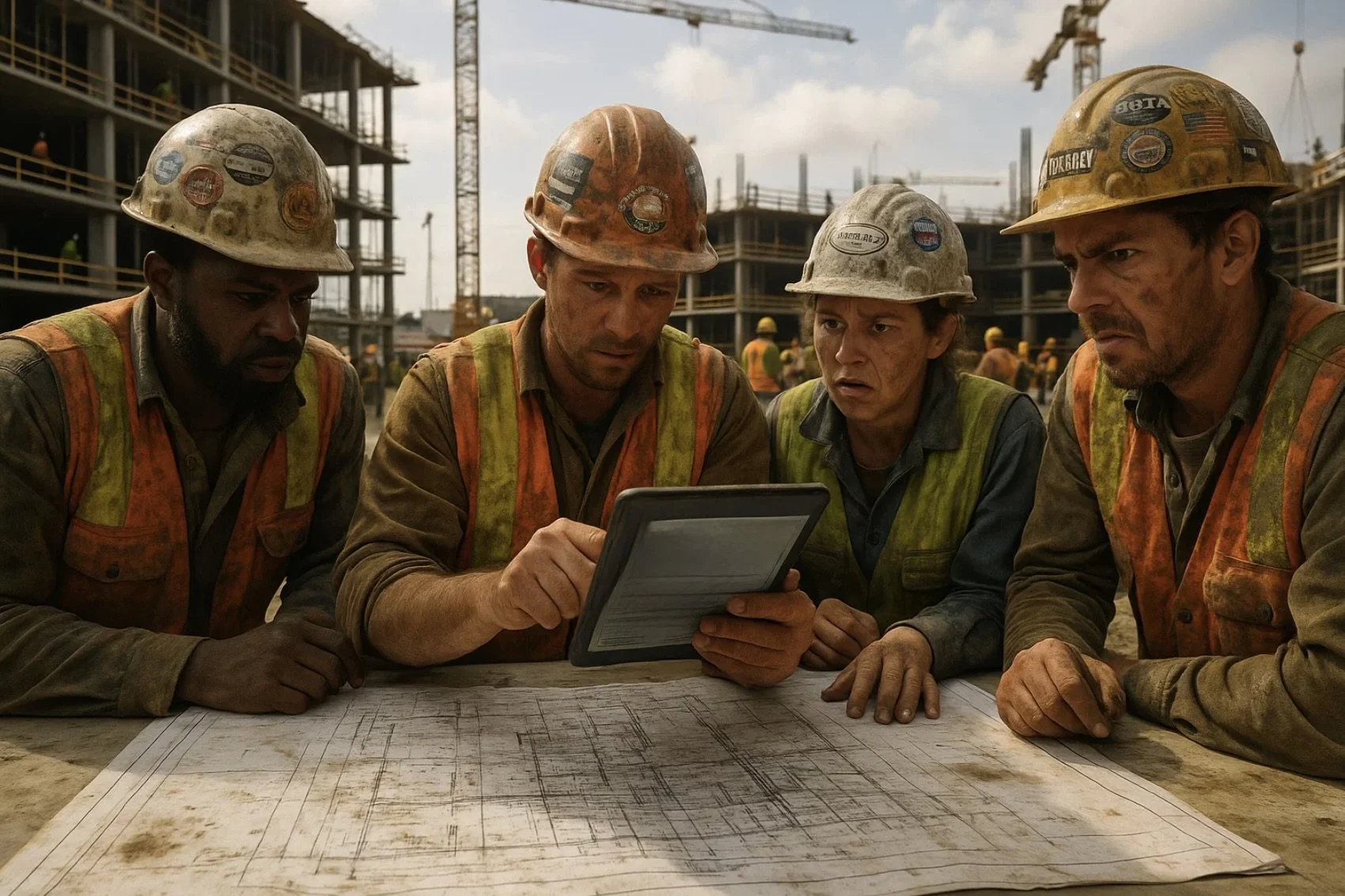
ConTech Doesn’t Replace Workers, It Empowers Them
Let’s get something straight right out of the gate: construction technology is not here to take jobs. Or at least it shouldn’t be. It’s here to empower the people you already have.
But somewhere along the line, tech adoption in construction started getting a bad rap. And many leadership teams (and software vendors) aren’t helping that perception much.
So, how do we set the record straight?

Compete Smarter, Not Harder: Why the Best Don’t Trash Competitors, They Outserve Them
If there’s one thing we can all agree on, it’s this: competition in construction isn’t going anywhere. But here’s where most folks get it wrong: they aim their competitive energy at taking down the other company.
If you want to win in this business, stop obsessing over the competition and start obsessing over your client’s success.
That’s the playbook of a true Contractor of Choice.

The Lie We Keep Telling Ourselves: Why Construction Can’t Afford to Keep Failing the Schedule
Let’s get straight to the point. The fundamental flaw in traditional project management is that it assumes perfect order in a world defined by chaos. The old playbook was built on the idea that if you set a timeline and a budget, and then assign resources with precision, everything will fall into place.
Spoiler alert: it rarely does.
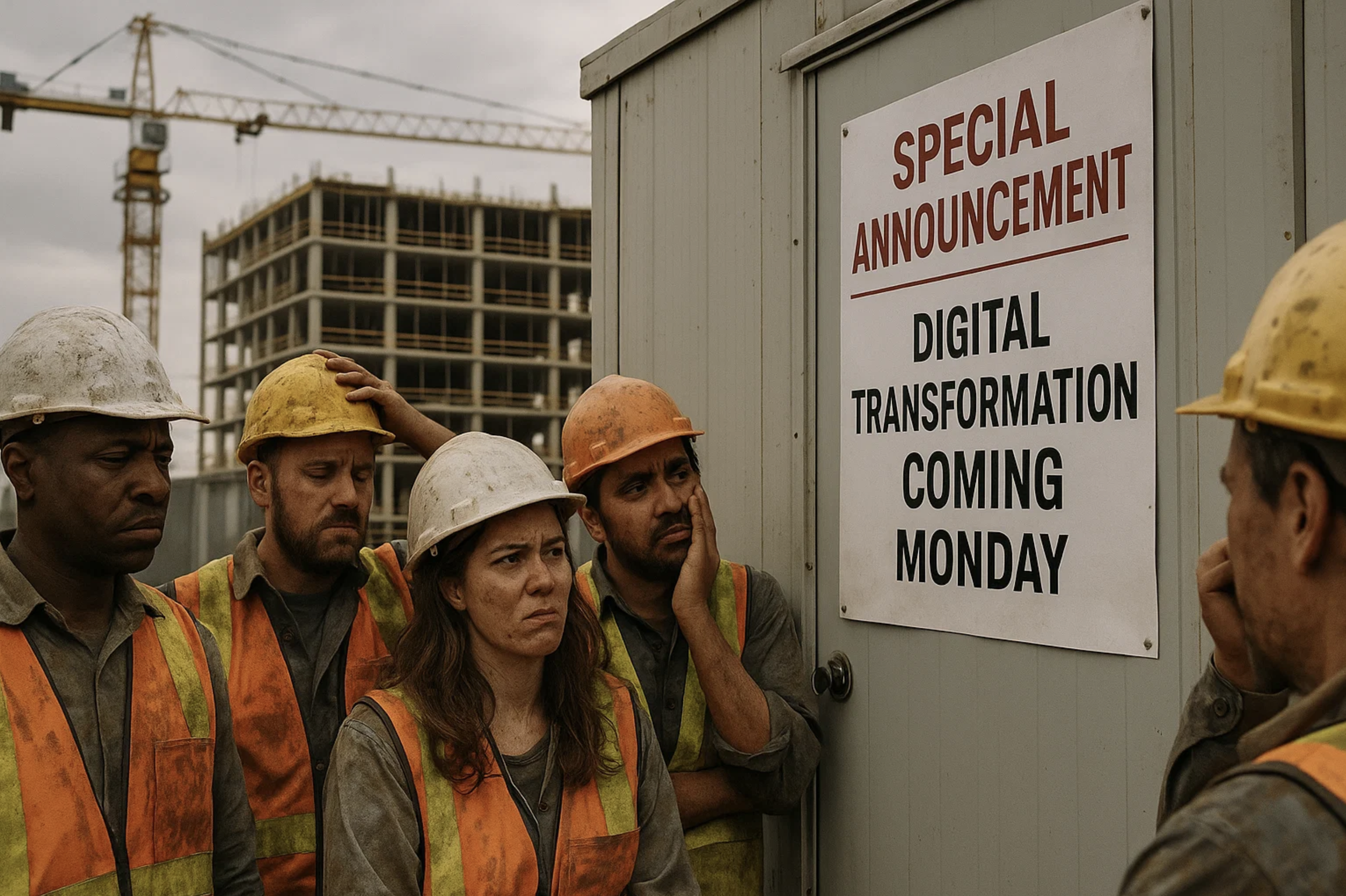
7 Reasons ConTech Implementations Fail (& How to Fix Them)
Let’s be honest: implementing technology in construction feels a lot like trying to run new electrical in a 100-year-old building. You start with high hopes, realize the wiring’s a mess, blow a few fuses and end up questioning all your life choices.
Trust me, I’ve been there.
But here’s the deal, construction needs this. So, here are the top seven reasons why construction tech implementations struggle, in my opinion. And more importantly, how we fix them.

More Than a Holiday: The Meaning of Memorial Day & Why Construction Should Care
Every year, Memorial Day rolls around and social media lights up with poolside photos, barbecue invitations and handful of mentions "honoring our heroes." For many, it’s the unofficial kickoff to summer. But for others—especially veterans and their families—it’s a deeply personal day of remembrance.
And it should be for all of us, but maybe even more so in construction.

Dear Interns: You’re Not Behind–You’re Just Getting Started
Sure, college is great for learning how to think critically, write 20-page papers at 2am and maybe survive on vending machine dinners and almost no sleep. But does it fully prepare you for onboarding into a real job?
Yeah, not really.
But here’s the good news: you’re not behind—you were actually built for this.

Innovation Demands More Than Ideas, It Demands Courage
Let’s be honest, “innovation” is one of those buzzwords that’s lost its shine. As the go-to word for anything new, different or even slightly techy, it’s a label that has been slapped on many safe ideas to make them sound bold.
It’s overused. It’s misused. It’s just noise. So much so that most folks roll their eyes when they hear it from people like me.
But despite all of that, real innovation still matters.


